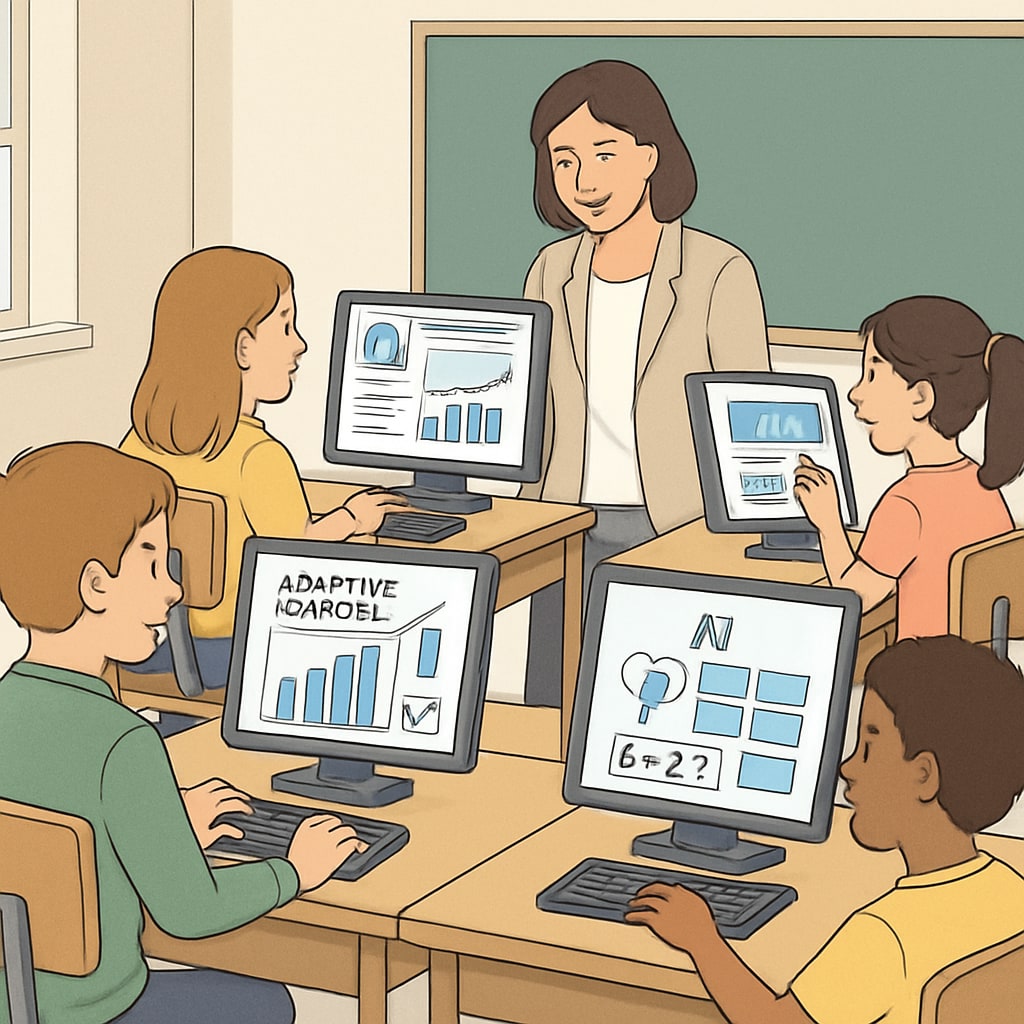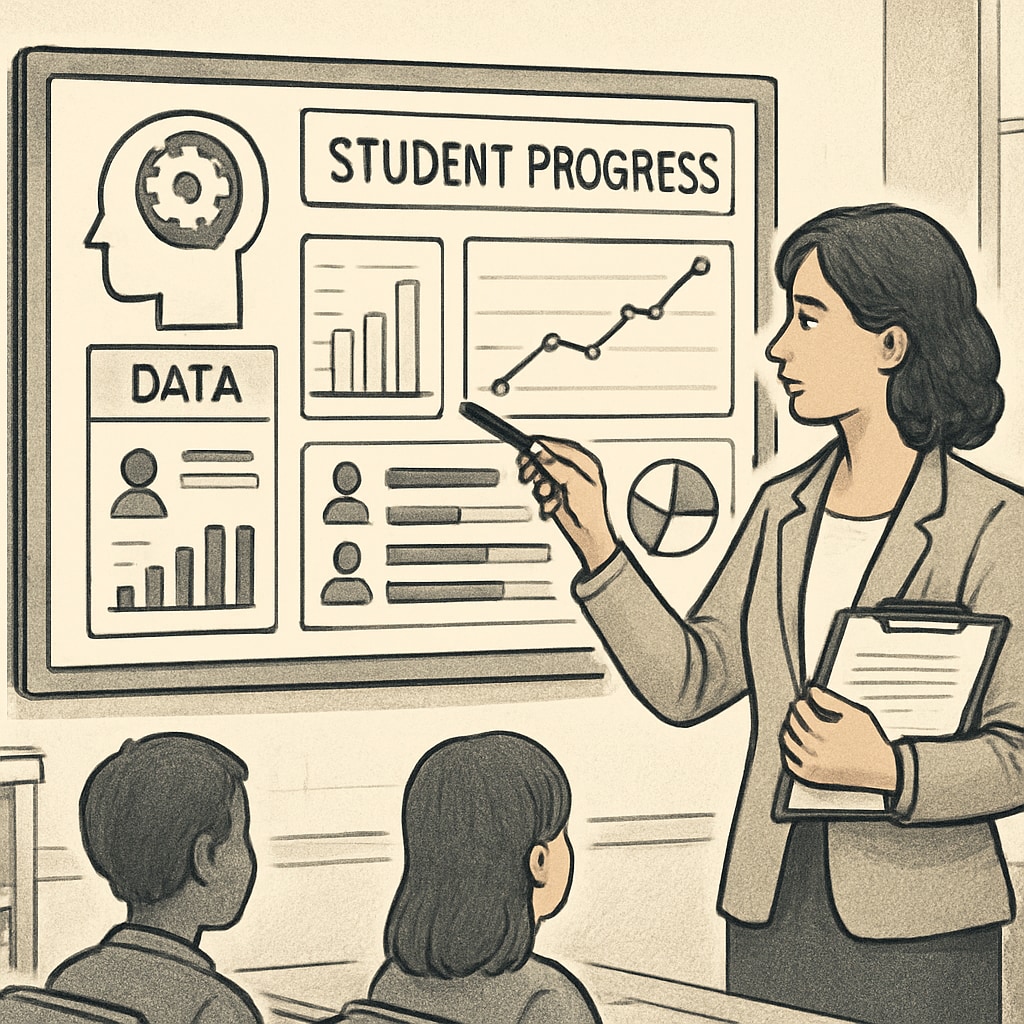Artificial intelligence (AI) is rapidly transforming the landscape of K12 education, presenting both opportunities and challenges for schools globally. With advancements in adaptive learning platforms, automated grading systems, and AI-driven educational tools, the traditional methods of schooling are set to undergo a profound shift in the next decade. By enhancing personalized learning, redefining teachers’ roles, and promoting equitable access to education resources, AI is poised to reshape how students learn and thrive in the classroom.
Personalized Learning: AI’s Role in Tailoring Education
One of the most significant contributions of AI to K12 education is its ability to deliver personalized learning experiences. Adaptive learning technologies powered by AI analyze students’ progress, strengths, and weaknesses in real time, enabling tailored instruction that caters to individual needs. For example, platforms like Khan Academy employ AI algorithms to guide students through customized learning paths, ensuring they master concepts before progressing.
Moreover, AI tools can identify gaps in knowledge and recommend targeted resources, such as practice exercises or instructional videos. This approach not only boosts academic outcomes but also fosters a sense of ownership and confidence among students. Personalized learning has the potential to bridge the gap between high-achieving students and those who need additional support, making education more inclusive.

Redefining Teachers’ Roles in the AI Era
While AI offers automation and efficiency, it does not replace teachers; rather, it redefines their roles. Educators are gradually transitioning from traditional content delivery to becoming facilitators of learning. AI handles repetitive tasks, such as grading assessments and monitoring attendance, freeing teachers to focus on higher-order responsibilities like mentoring, fostering creativity, and building critical thinking skills.
For example, AI-powered tools like automated essay grading systems allow teachers to allocate more time to personalized interactions with students. In addition, educators can leverage AI insights to better understand their students’ learning patterns, enabling more effective interventions when necessary.
As a result, teachers are empowered to adopt innovative pedagogical approaches, blending AI technologies with human-centric methods to enhance classroom engagement. The interplay between AI and educators creates a dynamic learning environment that benefits both students and teaching professionals.

Equitable Resource Distribution and Accessibility
AI also holds the promise of addressing long-standing issues in education equity. By automating administrative processes and optimizing resources, AI can ensure that students from underserved communities receive the same quality of education as their peers in more privileged settings. For instance, AI-powered virtual tutors and language translation tools can break barriers for non-native speakers and learners in remote areas.
In addition, AI-driven platforms can provide access to a wealth of digital learning materials, such as e-books, interactive simulations, and virtual laboratories. This democratization of education resources enables students from diverse backgrounds to access learning opportunities that were previously unavailable to them.
However, achieving equitable AI implementation requires addressing challenges like infrastructure gaps and ethical concerns regarding data privacy. Policymakers and educators must collaborate to ensure that AI solutions are accessible and inclusive for all students.
Challenges and Ethical Considerations
While the benefits of AI in education are undeniable, its implementation comes with challenges. Data security and privacy remain critical concerns, as AI systems rely on large volumes of student data to function effectively. Safeguarding sensitive information and ensuring ethical use of AI technologies must be a priority for schools and developers.
Additionally, the integration of AI into classrooms requires substantial investment in infrastructure and teacher training. Educators must be equipped with the skills to navigate AI tools and adapt their teaching methods accordingly. Without proper support, the digital divide could widen, exacerbating existing disparities in education.
Finally, AI systems must be designed to complement, not replace, human interaction. Education is inherently a social and emotional process, and striking the right balance between AI automation and human connection will be key to its success.
In conclusion, artificial intelligence offers transformative potential for K12 education, reshaping personalized learning, teacher roles, and equitable resource allocation. By addressing the challenges and ethical considerations, schools can harness AI to create smarter, more inclusive classrooms that prepare students for the future.


